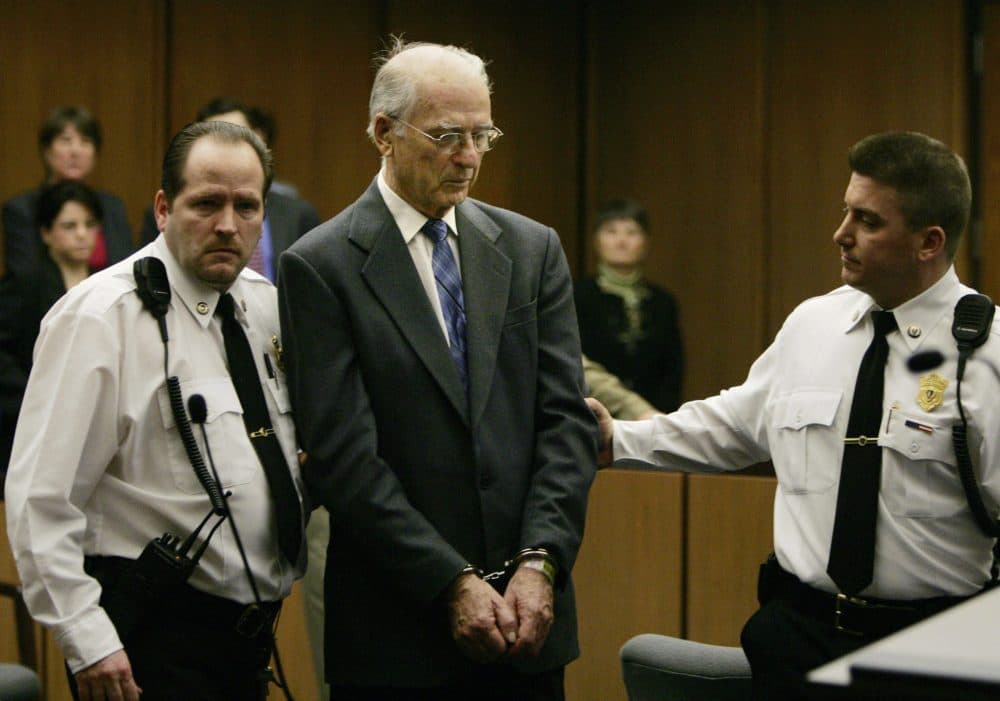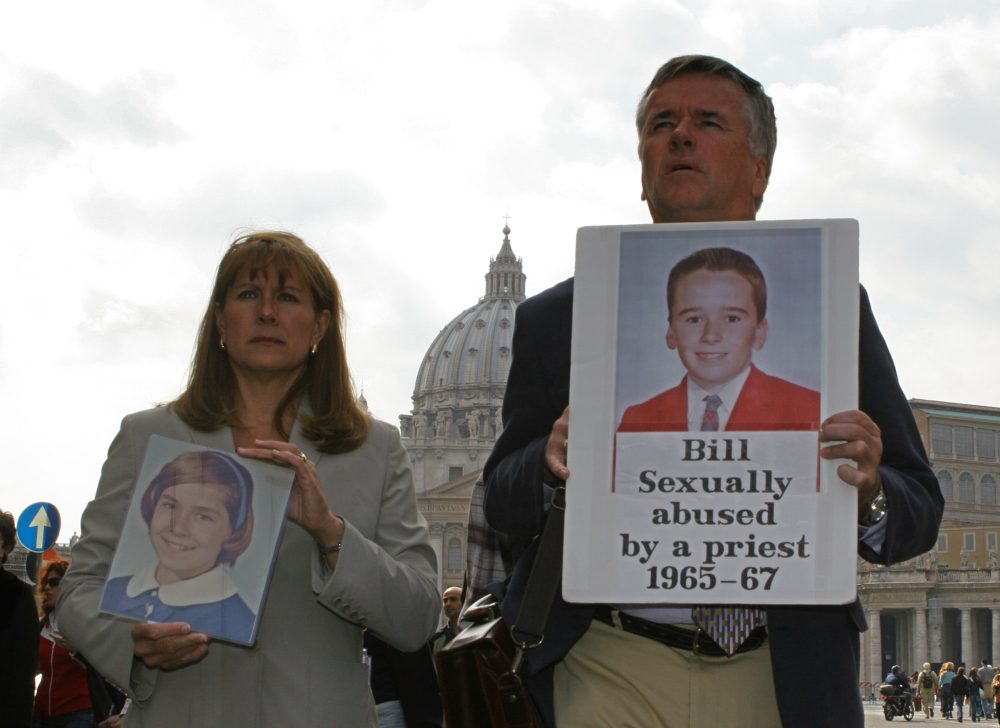Advertisement
Commentary
Call The 'Church Scandal' What It Is: Sexual Assault By Priests

It was big news across New England and beyond when Paul Shanley was released from prison on Friday. Shanley is a defrocked priest who was at the center of the exposure of widespread sexual abuse of children — and its cover-up — within the Archdiocese of Boston.
As I followed the coverage of this story, I noticed the repeated use of the word “scandal” to describe the sexual assault of children by clergy and the cover-up and abetting of abuse by the hierarchy of the Archdiocese. (For a sampling of this usage, see WBUR, The Boston Globe, The New York Times and the New Hampshire Union Leader.)
The word "scandal" implies a damage to reputation or a violation of propriety. Certainly the reputation of the Church was damaged, and certainly convicted pedophiles are guilty of violating social norms, but let's call it what it is: a violent crime. I don't think any of these news outlets would describe any other pattern of violent criminal activity as a “scandal.” Let's also call the cover-up what it is: the protection of rapists at the expense of victimized children and adult survivors who courageously came forward despite disbelief and re-traumatization.
I think it must have been easier for higher-ups in the Archdiocese of Boston to shuffle "molesters" from parish to parish than it would have been to shuffle child "rapists."
There’s another word that caught my attention in most of the coverage of Shanley’s release: molestation. CNN, for example, posted a moving video of Rodney Ford, describing the way that Shanley destroyed his son Gregory’s life, and naming the crimes for what they were: brutal rapes. CNN’s caption for this clip, however, referred to the crime as “molesting.” That word appears in most of the articles about the case.
Like “scandal,” the word "molestation" minimizes the traumatic impact of child sexual abuse. To molest someone is to bother them. Once again, let's call it what it is: rape, sexual assault, indecent assault and battery. These are the proper terms in the statute.
Shanley, for example, was convicted of two counts of rape of a child and two counts of indecent assault and battery. Not molesting a child. Not “fondling,” another word that has no place in discussions of sexual assault. Fondling is what people do affectionately with a child they love, or a consenting adult partner. See how unfitting that word is in this sentence from an AP story that appeared on WBUR's website: “But in 2005 [Shanley] was convicted of repeatedly raping and fondling a boy at a suburban parish…”
Language matters. Some people avoid the words rape and assault when the sexual abuse involves seduction, grooming and exploitation rather than physical violence. But this type of violation is also violence. In fact, it is a form of violence that can have deeper and longer-lasting impacts than the use of force.
Advertisement

Language matters even more in areas of life that have been secret and shame-filled. Consider the term date rape. When that phrase entered the vocabulary I had clients and friends who had sudden clarity: This is what happened to me; I never understood before there was a name for it.
Language matters. I think it must have been easier for higher-ups in the Archdiocese of Boston to shuffle molesters from parish to parish than it would have been to shuffle child rapists.
My reaction to the misuse of the word “scandal” has been more frequent — it has appeared in countless headlines since The Boston Globe began its Spotlight series on sexual abuse and cover-up in the Church. But my reaction to “molestation” has been more personal. I’m a psychologist, and I have worked with many adult survivors of childhood sexual abuse — by family members, clergy, teachers and strangers. I always try to follow their lead in how they name their experience. I’m also a survivor of childhood sexual abuse myself — violent assaults by teenage neighbors when I was 4-years-old. I had to fire a therapist who kept using the word “molestation” to refer to what happened to me, even though I explained several times how this undermined my ability to name my experience. In effect, he was saying to me the same thing those boys said to me: You’re making a big deal out of nothing.
Language matters. Let’s eliminate the words "scandal" and "molestation" from all of our discussions of sexual assault.
